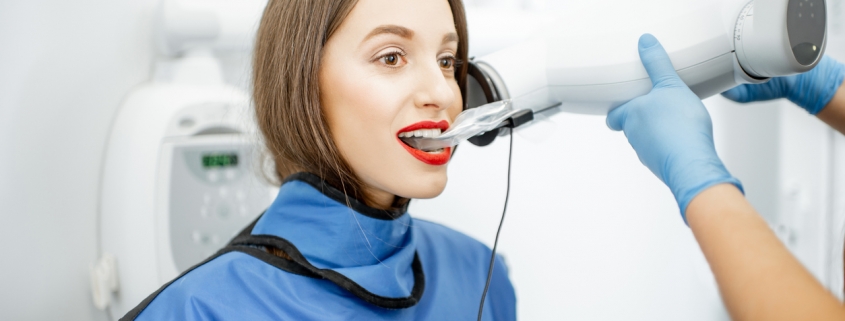Dental X-Rays
In general, dental x-rays are incredibly safe and should not cause anyone to worry or panic, especially about the radiation since dental x-rays have very low doses of radiation, especially when compared to other machines used for similar purposes. However, if that is not enough to put your mind at ease, then here are a few facts about dental x-rays.
Dental x rays are used in order for dentists to see what is going on inside your teeth and in your gums without having to surgically cut them open to observe. Dental x-rays can show things such as:
- Bone loss
- Tumors
- Abscesses
- Decay
Without having a dental x-ray, these problems may go unnoticed and therefore untreated, leading to painful problems in the future when they do surface.
As far as children are concerned, while they are more sensitive to radiation than adults, it is still considered a safe practice to perform. Dental x-rays are especially important for children as their teeth go through a ton of development and growth during their younger years. Having dental x-rays done can help dentists chart their growth and help detect issues such as a tooth that is growing in the wrong place, or whether crowding will be an issue.
However, with the case of pregnant women, it is advised that they avoid x-rays to prevent even the smallest of radiation from reaching the fetus and stunting any development. There may be some cases, however, where an x-ray may have to happen, in which case your dentist can recommend some safety precautions such as a protective cover to help keep radiation to a minimum. You can also request to have the radiation set to a minimum and to only take a single image, rather than multiple.
X-rays are not needed every time you go to the dentist’s office. Your dentist will determine when they are necessary and when they can be skipped. However, those with dental conditions that need to be monitored closely will need more x-rays than others, as well as those who are prone to dental disease and other serious conditions.
Speak with your dentist for further information pertaining to you and your x-ray schedule.




Leave a Reply
Want to join the discussion?Feel free to contribute!